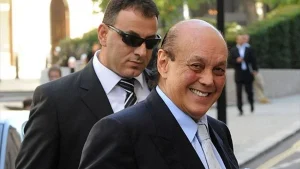She is eager to see cooperation between countries, particularly the US. During her speech at the Royal United Services Institute in London on 3 April 2019 she stated, “we need to cooperate more effectively across jurisdictions”. Other areas that the Director has said could impact on the swiftness of investigations is utilising technology and encouraging suspects to co-operate with the SFO which is something that is commonplace in the Director’s native land, America and is often referred to in that country as a ‘plea deal’. At the GIR Live, Women in Investigations Conference in May 2019, Ms Osofsky recently made reference to increased reliance on co-operating suspects giving evidence against senior individuals. This article will focus on the ways that a suspect in the UK can co-operate, the process for potential involvement and entering into a formal SOCPA agreement.
Sections 71 to 74 of the Serious Organised Crime and Police Act 2005 (“the Act”) provide for circumstances where offenders have assisted an investigation and in exchange for assistance, the suspect may not be prosecuted or may qualify for incentives. The relevant sections came into force on 7th April 2006 and they added a statutory framework to the pre-existing common law system of incentives and also provided for the possibility of sentence reviews. The relevant provisions are as follows:
- Section 71 – Immunity from prosecution
- Section 72 – Restricted use undertakings
- Section 73 – Reduction in sentence
- Section 74 – Review of sentence
Under section 71, a specified prosecutor[1] (which includes the Director of the SFO) can offer immunity from criminal prosecution to an individual for an indictable or triable either way offence provided they believe it is appropriate to do so for the purposes of the investigation. This is offered in exchange for a suspect’s full co-operation.
Matters to consider in determining whether it is appropriate to grant immunity to a witness were set out by the then Attorney General in a written answer to the House of Commons on 9 November 1981. They include the following:
- Whether, in the interests of justice, it is of more value to have an offender as a witness for the Crown, rather than as a possible defendant.
- Whether, in the interests of public safety and security, the obtaining of information about the extent and nature of criminal activities is of greater importance than the possible conviction of an offender.
- Whether it is unlikely that any information could be obtained without an offer of immunity and whether it is also unlikely that any prosecution could be launched against the offender to whom the immunity is offered.
Under section 72, a specified prosecutor can offer a suspect an undertaking that information of a specific description will not be used in any criminal proceedings, confiscation proceedings or civil recovery. This is known as a restricted use undertaking and must be given in writing. It ceases to have effect if the suspect fails to comply with any conditions specified in the undertaking.
Section 73 allows for a reduction in sentence for a defendant who has provided or has offered to provide assistance to an investigator or prosecutor as long as they have entered a guilty plea. In determining the appropriate sentence, the court may take into account the extent and nature of the assistance given and offered however it is important to point out that any reduction is discretionary.
The decision as to whether it is appropriate to offer a formal written agreement in any particular case is entirely that of the specified prosecutor.
Section 74, is a new addition (to pre – existing common law) brought in by the Act. Under this section a specified prosecutor can refer a sentence back to the sentencing court for review if certain conditions are met and if the defendant is still serving the sentence. The prosecutor must think it is in the interests of justice to do so. Reviews are permitted in the following circumstances:
- a) The person receives a discounted sentence due to having offered (in pursuance of a written agreement) to give assistance to the prosecutor or investigator, but knowingly fails to any extent to give assistance in accordance with the agreement.
- The person receives a discounted sentence in the same circumstances as in the bullet point above, provides that assistance and in pursuance of another written agreement, gives or offers further assistance.
- The person does not receive a discounted sentence but subsequently (in pursuance of a written agreement) gives or offers assistance. In this situation, the sentence received will be reduced.
SOCPA PROCESS
The decision as to whether it is appropriate to offer a formal written agreement in any particular case is entirely that of the specified prosecutor. However, either the suspect or the specified prosecutor can initiate the discussion. Formal notices and agreements are usually only signed after a person has been interviewed under caution and has provided at least one version of the information available. No notice or undertaking will be issued on the basis that a suspect will only divulge information once an immunity or undertaking has been given.
Offenders who are to give evidence for the prosecution and wish to benefit from a written agreement must admit their criminality fully in an interview.
Usually investigators will conduct a "scoping interview" to ascertain the reason(s) for the suspect agreeing or requesting to be interviewed and the extent to which the offender can give evidence. This will take place under caution and will be audio recorded. For obvious reasons, some offenders may be reluctant to provide full and frank information under caution. In order to address this issue in section 72, 73 and 74 cases there are limited circumstances where it will be appropriate to sign an agreement after the witness has been through a scoping interview and before full debriefing under caution. In these circumstances prosecutors may invite the offender to participate in a scoping interview using a "proffer letter" to assess what information or evidence may be available, what its potential worth may be, and whether or not an agreement under the Act may be appropriate.
CLEANSING
Offenders who are to give evidence for the prosecution and wish to benefit from a written agreement must admit their criminality fully in an interview. This process is called "cleansing" and is part of the debriefing process carried out by the specified prosecutor in the process of obtaining the evidence of the offender. The interview will be audio recorded and under caution. The offender must:
- Fully admit their own involvement;
- Provide all information available to them; and
- Agree to maintain continuous and complete co-operation.
Once the agreement has been signed by the offender, it should be returned immediately to the specified prosecutor for signature via the debrief unit.
AGREEMENT
The specified prosecutor will then discuss the terms of the agreement with the debriefing officers and draft an agreement. This should be drafted with as much precision as possible and include the terms under which the assistance is to be given, the range of assistance that is to be given and detail any benefit to the offender. Once the draft has been agreed by both the specified prosecutor and the defence it will be made available through the debrief unit for the agreement and signature of the offender. The solicitor representing the offender must also agree and sign an undertaking in relation to their handling of the document while it is in their temporary possession. Once the agreement has been signed by the offender, it should be returned immediately to the specified prosecutor for signature via the debrief unit.
REPORT
In order to assist the court in sentencing the specified prosecutor will provide a report setting out:
- The quantity and quality of the assistance given;
- The results arising from it (e.g. arrests or prosecutions directly attributable to the assisting offender's information);
- An assessment of the risks that the assisting offender and their family face as a result of his or her co-operation; and
- The report should also indicate the extent to which the offender has admitted their criminality and what steps the prosecutor has taken to secure full cleansing.
Despite Ms Osofsky’s drive to utilise the provisions of the Act more we are yet to hear of any cases
FIGURES
In past years these agreements have been very rarely used. The limited available statistics show the following:
Immunity
- The CPS Guidance states that immunity should only be used in the most exceptional cases.
- Between May 2011 and April 2013 no immunity was granted by either the SFO or the CPS.
Reduction in sentences
- There have been more agreements under section 73.
- Between May 2011 and April 2013, the CPS concluded 38 agreements.
- Between 2006 and 2014, the SFO entered into 11 agreements.
- Between May 2015 and April 2016 the SFO entered into 12 agreements.
Referrals back to court
- During 2015 – 2016 there were 6 referrals back to the sentencing court by the CPS
CONCLUSION
Despite Ms Osofsky’s drive to utilise the provisions of the Act more we are yet to hear of any cases. This is perhaps due to the highly risky necessity for suspects to ‘cleanse’ themselves and admit to all illegal conduct with no guarantee that they will actually achieve such an agreement. Should they fail to comply and not be completely open and honest no agreement will be reached or any such agreements will be withdrawn. It will be interesting to see how this area develops over Ms Osofsky’s tenure. There has certainly been a change in the landscape as a result of Deferred Prosecution Agreements (“DPAs”) putting increased pressure on companies and in particular senior directors and executives. Time will tell whether we see a similar change in the area of cooperating suspects. This will be subject to many factors including time and resources but is obviously largely dependent on individuals deciding whether cooperating and entering into an agreement is worth the risks involved.
Ilana is a criminal litigation lawyer specialising in white collar crime and corporate fraud matters. She has experience defending allegations of complex fraud including corruption, money laundering, tax evasion, insider dealing, fraud by abuse of position, fraudulently selling tickets and land banking. Ilana's experience covers investigations and prosecutions brought by the Serious Fraud Office (SFO), Financial Conduct Authority (FCA) (formerly the Financial Services Authority), Crown Prosecution Service (CPS), HM Revenue and Customs (HMRC), The Royal Mail and National Trading Standards. Ilana advises professional clients in respect of regulatory proceedings including Solicitors Regulation Authority (SRA) investigations and interventions. Ilana also specialises in representing clients in Restraint and Confiscation proceedings.
Byrne and Partners LLP is a dedicated civil and criminal litigation practice providing individual partner attention and high levels of service.
https://www.byrneandpartners.com/
[1] For a definition of this see section 71(4) of the Act.




















